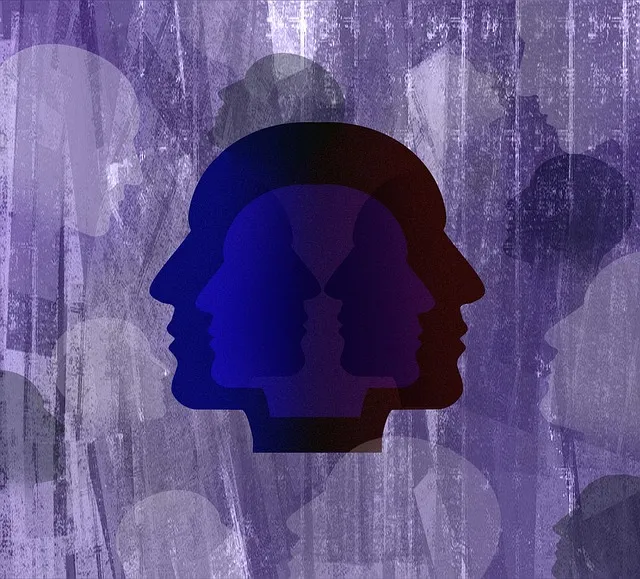Cultural sensitivity in mental healthcare is crucial for providing equitable care, as demonstrated by Kaiser Permanente's dedicated phone line in NorCal and Castle Rock. By recognizing and respecting diverse beliefs, values, and practices, healthcare providers can tailor stress management, conflict resolution, and burnout prevention strategies to individual patients. Overcoming language barriers and understanding cultural contexts are key challenges, with structured training programs focusing on emotional intelligence and culturally competent practices as solutions. This approach ensures personalized treatment plans for all communities, fostering deeper connections and improving patient outcomes through compassionate, innovative care. For access to culturally sensitive mental health services, individuals can reach out to the Kaiser Permanente mental health phone number in NorCal Castle Rock.
In an increasingly diverse society, cultural sensitivity in mental healthcare is paramount. Understanding and addressing cultural nuances can significantly enhance patient outcomes. This article explores the intricate aspects of providing culturally competent care, highlighting challenges faced by practitioners. We delve into effective strategies to improve sensitivity in practice, drawing insights from organizations like Kaiser Permanente Norcal, known for its commitment to diverse mental health services. For those seeking guidance, the Kaiser Permanente mental health phone number Norcal Castle Rock offers a vital resource.
- Understanding Cultural Sensitivity in Mental Healthcare
- Challenges in Providing Culturally Competent Care
- Strategies for Improving Cultural Sensitivity in Practice
- The Role of Organizations Like Kaiser Permanente Norcal in Promoting Diverse Mental Health Services
Understanding Cultural Sensitivity in Mental Healthcare

Cultural sensitivity in mental healthcare practice is a critical aspect that ensures providers offer effective and equitable care to diverse patient populations. It involves understanding, appreciating, and respecting the unique cultural beliefs, values, and practices that shape individuals’ experiences of mental health and well-being. This is especially relevant for regions like NorCal and Castle Rock, where Kaiser Permanente’s dedicated mental health phone number serves a wide range of communities with varied cultural backgrounds.
By integrating cultural sensitivity, healthcare providers can avoid potential pitfalls such as unconscious biases or miscommunications that may arise when treating patients from different ethnicities, races, religions, or socio-economic groups. It enables practitioners to tailor their approach, ensuring that stress management techniques, conflict resolution strategies, and burnout prevention methods are culturally appropriate and accessible. For instance, what works for one patient might not be suitable for another, so understanding cultural nuances is key to preventing misdiagnosis or ineffective treatment plans.
Challenges in Providing Culturally Competent Care

Providing culturally competent care presents unique challenges for mental health professionals, particularly in diverse regions like Norcal’s Castle Rock area, where Kaiser Permanente offers its dedicated mental health phone number as a resource. Understanding and respecting cultural differences is essential to creating an inclusive environment for all patients. One significant hurdle is the potential language barrier, which can hinder effective communication and trust-building between client and caregiver. This challenge calls for the implementation of interpreter services or culturally fluent staff members to facilitate clear and respectful exchanges.
Additionally, mental health professionals must be mindful of different cultural beliefs and practices related to mental illness. What may be considered a typical self-care routine in one culture could be entirely foreign or even stigmatized in another. For instance, promoting meditation as a stress reliever might not resonate with patients from cultures that emphasize traditional healing practices. Adapting mental health education programs to incorporate diverse perspectives on well-being and mental illness is crucial. Effective communication strategies, tailored to individual cultural backgrounds, can foster deeper connections, enhance understanding, and ultimately improve patient outcomes.
Strategies for Improving Cultural Sensitivity in Practice

Improving cultural sensitivity in mental healthcare requires a multifaceted approach. Organizations like Kaiser Permanente Norcal Castle Rock can lead the way by implementing structured training programs for their staff, focusing on emotional intelligence and regulatory practices that are culturally competent. These initiatives should include interactive workshops that educate professionals about diverse cultural beliefs, values, and communication styles, fostering an environment where patients feel understood and respected.
Additionally, integrating stress management techniques tailored to various cultural backgrounds can significantly enhance the quality of care. Encouraging open dialogue about emotional experiences within a safe, inclusive setting empowers individuals from diverse communities to share their unique perspectives. This, in turn, allows mental health professionals to develop personalized treatment plans that address the specific emotional regulation needs of each patient, ensuring effective and culturally sensitive care.
The Role of Organizations Like Kaiser Permanente Norcal in Promoting Diverse Mental Health Services

Kaiser Permanente Norcal stands as a beacon of diversity and cultural sensitivity in mental healthcare services. As an organization committed to serving a wide range of communities, they understand the critical importance of providing care that resonates with various cultural backgrounds and beliefs. Through initiatives focused on mindfulness meditation and burnout prevention strategies for healthcare providers, Kaiser Permanente Norcal ensures their staff is equipped to offer effective support tailored to individual needs.
The mental health phone number for Kaiser Permanente Norcal, such as Castle Rock, serves as a vital link for individuals seeking assistance. This accessible resource allows people from diverse communities to connect with specialists who appreciate the nuances of cultural influences on mental health. By prioritizing mindfulness meditation and mood management techniques, Kaiser Permanente Norcal fosters an inclusive environment where all individuals can receive compassionate and culturally sensitive care, ultimately enhancing overall well-being.
Cultural sensitivity is a cornerstone of effective mental healthcare, ensuring that services are accessible and tailored to diverse communities. As highlighted by organizations like Kaiser Permanente Norcal, navigating the challenges of providing culturally competent care through initiatives in Castle Rock and beyond, requires an integrated approach. By fostering an environment that values diversity, implements evidence-based strategies, and leverages resources like the Kaiser Permanente mental health phone number Norcal, we can create a more inclusive system. This not only enhances patient outcomes but also strengthens the overall mental health landscape for all communities.






